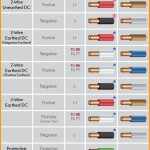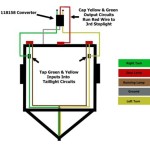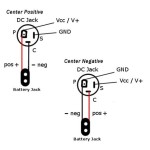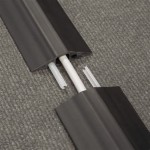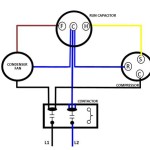Aluminum Wiring Vs Copper: Aluminum and copper are two commonly used electrical conductors. Aluminum is lighter and less expensive than copper, but it is also more prone to corrosion and fire hazards. In the 1960s and 1970s, aluminum wiring was widely used in residential construction, but its use declined after a series of house fires were linked to faulty aluminum wiring. Today, copper is the preferred choice for electrical wiring in most homes.
Copper is a better conductor of electricity than aluminum, and it is also more durable and resistant to corrosion. As a result, copper wiring is less likely to cause electrical problems or fires. Copper wiring is also easier to work with than aluminum wiring, making it a better choice for do-it-yourselfers.
The transition from aluminum to copper wiring was a significant development in the history of electrical safety. By replacing aluminum wiring with copper wiring, homeowners can reduce the risk of electrical fires and other electrical problems.
\
Understanding the key aspects of “Aluminum Wiring Vs Copper” is crucial for ensuring electrical safety in homes. These aspects encompass the properties, applications, and potential hazards associated with aluminum and copper wiring.
- Conductivity: Copper is a better conductor of electricity than aluminum.
- Cost: Aluminum is less expensive than copper.
- Weight: Aluminum is lighter than copper.
- Corrosion Resistance: Copper is more resistant to corrosion than aluminum.
- Fire Resistance: Aluminum is more prone to fire hazards than copper.
- Durability: Copper is more durable than aluminum.
- Flexibility: Aluminum is more flexible than copper.
- Installation: Copper is easier to work with than aluminum.
- Safety: Copper wiring is less likely to cause electrical problems or fires than aluminum wiring.
- Code Compliance: In most areas, copper wiring is the preferred choice for electrical wiring in homes.
These aspects highlight the importance of understanding the differences between aluminum and copper wiring. By considering these factors, homeowners can make informed decisions about the type of wiring to use in their homes, ensuring electrical safety and minimizing the risk of electrical fires and other electrical problems.
Conductivity
The conductivity of a material is a measure of its ability to conduct electricity. Copper has a higher conductivity than aluminum, which means that it can conduct electricity more easily. This difference in conductivity is one of the key factors that makes copper a better choice for electrical wiring than aluminum.
In electrical wiring, the conductivity of the material is important because it affects the amount of current that can flow through the wire. A wire with a higher conductivity will be able to carry more current than a wire with a lower conductivity. This is important because too much current can cause the wire to overheat and start a fire.
In addition to its higher conductivity, copper is also more resistant to corrosion than aluminum. This means that copper wires are less likely to develop problems over time, which can lead to electrical fires.
For all of these reasons, copper is the preferred choice for electrical wiring in most homes and businesses. While aluminum wiring was once used in some homes, it has since been phased out due to the safety concerns associated with it.
Cost
The cost of aluminum is one of the key factors that has led to its use in electrical wiring. Aluminum is less expensive than copper, which can make it a more attractive option for builders and homeowners. However, it is important to weigh the cost savings against the potential safety concerns associated with aluminum wiring.
In the 1960s and 1970s, aluminum wiring was widely used in residential construction. However, a series of house fires were linked to faulty aluminum wiring, and its use declined. Today, copper is the preferred choice for electrical wiring in most homes.
One of the main reasons for the switch to copper is that it is a more reliable and safer material for electrical wiring. Copper is less likely to corrode or overheat, which can reduce the risk of electrical fires.
While aluminum is less expensive than copper, it is important to consider the long-term costs associated with aluminum wiring. Aluminum wiring is more likely to cause electrical problems, which can lead to costly repairs or even fires. In addition, aluminum wiring can be more difficult to sell a home, as many buyers are aware of the potential safety concerns associated with it.
For all of these reasons, it is important to weigh the cost savings of aluminum wiring against the potential risks. In most cases, copper wiring is the better choice for electrical wiring in homes and businesses.
Weight
In the context of “Aluminum Wiring Vs Copper,” the weight of the material is an important consideration, particularly in large-scale electrical projects or applications where weight reduction is crucial. Aluminum’s inherent lightness compared to copper offers distinct advantages and implications, which we will explore in the following detailed analysis.
-
Electrical Installations
In extensive electrical installations, such as commercial buildings or industrial facilities, the weight of the wiring can be a significant factor. Aluminum’s lighter weight reduces the overall weight of the electrical system, simplifying installation, reducing labor costs, and potentially decreasing structural support requirements.
-
Transportation and Handling
During transportation and handling, the lighter weight of aluminum wiring is advantageous. It easier handling, reduces the risk of accidents or injuries, and simplifies storage and logistics.
-
Portability in Devices
In portable electronic devices, such as laptops or power tools, the weight of the electrical wiring can impact the overall weight and portability of the device. Aluminum’s lighter weight contributes to the overall portability and convenience of these devices.
-
Aerospace Applications
In aerospace applications, weight reduction is critical for optimizing performance and efficiency. Aluminum’s lighter weight makes it a suitable choice for electrical wiring in aircraft, satellites, and other aerospace systems.
In summary, the weight advantage of aluminum over copper has significant implications in various applications, particularly those involving extensive electrical installations, transportation and handling, portable devices, and aerospace engineering. Its lighter weight offers practical benefits, cost savings, and performance enhancements.
Corrosion Resistance
In the context of “Aluminum Wiring Vs Copper,” corrosion resistance plays a crucial role in determining the safety, reliability, and longevity of electrical wiring. Copper’s superior corrosion resistance compared to aluminum has significant implications and consequences, which we will explore in detail.
Corrosion is the deterioration of a material due to chemical reactions with its environment. In the case of electrical wiring, corrosion can lead to reduced conductivity, increased resistance, and ultimately, failure of the wiring. Aluminum is particularly susceptible to corrosion, especially in the presence of moisture and oxygen. This susceptibility is due to the formation of aluminum oxide on the surface of the metal, which can impede electrical flow and create weak points in the wiring.
In contrast, copper is highly resistant to corrosion. This is because copper oxide, which forms on the surface of the metal, is stable and protective. The protective layer of copper oxide prevents further corrosion and ensures the long-term integrity of the wiring.
The superior corrosion resistance of copper makes it a more reliable and safer choice for electrical wiring, particularly in environments where moisture and other corrosive elements are present. Copper wiring is less likely to experience performance degradation or failure due to corrosion, reducing the risk of electrical hazards and ensuring a longer lifespan for the electrical system.
Examples of the practical applications of this understanding include:
- In marine environments, where exposure to salt water and moisture is high, copper wiring is preferred to prevent corrosion and ensure the safety and reliability of electrical systems on boats and ships.
- In industrial settings, where exposure to chemicals and other corrosive substances is common, copper wiring is utilized to maintain electrical integrity and prevent accidents.
- In residential and commercial buildings, copper wiring is the preferred choice for long-term performance and safety, ensuring the reliable operation of electrical systems and reducing the risk of electrical fires.
In summary, the corrosion resistance of copper is a critical component of “Aluminum Wiring Vs Copper,” influencing the safety, reliability, and lifespan of electrical wiring. Copper’s superior resistance to corrosion makes it the preferred choice for various applications, ensuring the integrity of electrical systems and minimizing the risk of electrical hazards.
Fire Resistance
Relationship to “Aluminum Wiring Vs Copper”
Fire resistance is a crucial component of “Aluminum Wiring Vs Copper” because it directly impacts the safety and reliability of electrical wiring. Aluminum’s higher susceptibility to fire hazards compared to copper has significant implications and consequences.
Cause and Effect
Aluminum’s low melting point and high thermal expansion coefficient make it more prone to fire hazards. When exposed to high temperatures, aluminum wires can melt and sag, causing short circuits and increasing the risk of electrical fires. Additionally, the formation of aluminum oxide during combustion can create a high-resistance barrier, further escalating the fire hazard.
Real-life Examples
The use of aluminum wiring in the 1960s and 1970s led to a series of house fires, prompting a shift towards copper wiring. In one notable case, a fire in a high-rise apartment building in Chicago in 1973 was attributed to faulty aluminum wiring, resulting in multiple fatalities.
Practical Applications
Understanding the fire resistance properties of aluminum and copper is essential for electrical safety. In areas with strict fire codes, such as commercial buildings and high-rise residential complexes, copper wiring is often mandated due to its superior fire resistance.
Summary
The fire resistance aspect of “Aluminum Wiring Vs Copper” highlights the importance of using materials that can withstand high temperatures and minimize the risk of electrical fires. Copper’s superior fire resistance makes it the preferred choice for electrical wiring in safety-critical applications, ensuring the protection of life and property.
Durability
In the context of “Aluminum Wiring Vs Copper,” durability plays a pivotal role in determining the longevity and reliability of electrical wiring. Copper’s superior durability compared to aluminum has significant implications, particularly in demanding applications and harsh environments.
-
Resistance to Corrosion
Copper’s inherent resistance to corrosion, stemming from the formation of a stable oxide layer, ensures its longevity and performance in environments prone to moisture and chemicals. Unlike aluminum, which is susceptible to corrosion, copper wiring maintains its integrity, reducing the risk of electrical failures and extending its lifespan.
-
Mechanical Strength
Copper’s superior mechanical strength makes it less prone to breakage or deformation under physical stress. This resilience is crucial in applications where wiring may be subject to vibrations, movement, or external forces. Copper wiring can withstand these conditions better than aluminum, ensuring reliable electrical connections and minimizing the need for repairs or replacements.
-
Thermal Stability
Copper’s high thermal conductivity and stability make it suitable for high-temperature applications. It can withstand extreme temperatures without losing its electrical properties or compromising safety. This characteristic is particularly important in industrial settings, power plants, and other environments where heat generation is a concern.
-
Reliability and Safety
The combined durability factors of copper contribute to its overall reliability and safety in electrical wiring. Copper’s resistance to corrosion, mechanical strength, and thermal stability ensure consistent performance, reduce the risk of electrical hazards, and enhance the safety of electrical systems. By using copper wiring, the likelihood of electrical failures, fires, or accidents is significantly diminished.
In summary, the superior durability of copper over aluminum makes it the preferred choice for electrical wiring in various applications. Its resistance to corrosion, mechanical strength, thermal stability, and overall reliability contribute to the longevity, safety, and efficiency of electrical systems.
Flexibility
In the comparison of “Aluminum Wiring Vs Copper,” flexibility is a significant attribute that affects the ease of installation, handling, and adaptability of electrical wiring. Aluminum’s superior flexibility compared to copper has both advantages and implications in various electrical applications.
The flexibility of aluminum wiring allows it to be easily bent and shaped, making it suitable for complex installations or tight spaces. This flexibility simplifies the routing of wires through walls, ceilings, and other obstacles, reducing the time and effort required for installation.
However, the flexibility of aluminum also presents potential drawbacks. While it eases installation, it may increase the risk of damage to the wires if they are not properly supported or protected. Aluminum’s softness makes it more susceptible to bending or kinking, which can compromise the integrity of the electrical connection and create safety hazards.
Understanding the flexibility characteristics of aluminum and copper is crucial for selecting the appropriate wiring material based on the specific requirements of an electrical project. In applications where flexibility is paramount, such as in tight spaces or for intricate wiring configurations, aluminum may be the preferred choice. However, in situations where durability and structural integrity are critical, copper’s superior strength and resistance to bending may make it a more suitable option.
In summary, the flexibility aspect of “Aluminum Wiring Vs Copper” highlights the importance of considering the physical properties of wiring materials in electrical installations. Aluminum’s flexibility offers advantages in ease of handling and installation, while copper’s strength and rigidity provide better durability and reliability in demanding applications.
Installation
In the context of “Aluminum Wiring Vs Copper,” the ease of installation is a crucial factor influencing the choice of wiring material. Copper’s superior workability compared to aluminum has significant implications for electrical contractors and do-it-yourself enthusiasts alike.
Copper’s malleability and flexibility make it easier to bend, shape, and manipulate during installation. It can be easily cut, stripped, and connected using standard tools, reducing the time and effort required for wiring tasks. This ease of handling makes copper particularly well-suited for complex installations, tight spaces, and intricate wiring configurations.
Conversely, aluminum’s stiffness and brittleness make it more challenging to work with. It requires more careful handling to avoid bending or kinking the wires, which can compromise the integrity of the electrical connection. Additionally, aluminum is more difficult to strip and connect, requiring specialized tools and techniques.
The ease of installation associated with copper wiring offers several practical benefits. It reduces labor costs for electrical contractors, as less time is spent on installation and troubleshooting. For do-it-yourself enthusiasts, copper’s workability makes electrical projects more accessible and less daunting.
In summary, the installation aspect of “Aluminum Wiring Vs Copper” highlights the importance of considering the workability of wiring materials. Copper’s superior ease of installation makes it a preferred choice for various electrical applications, simplifying the installation process, reducing costs, and enhancing the overall safety and reliability of electrical systems.
Safety
In the context of “Aluminum Wiring Vs Copper,” safety is a paramount concern, as the choice of wiring material directly impacts the risk of electrical problems and fires. Copper’s superior safety characteristics compared to aluminum make it the preferred choice for electrical wiring in homes, businesses, and other buildings.
One of the key reasons for copper’s superior safety is its higher melting point compared to aluminum. Aluminum melts at a relatively low temperature, making it more susceptible to overheating and melting in the event of an electrical fault. This can lead to arcing, sparks, and ultimately, electrical fires.
Real-life examples underscore the importance of using copper wiring for safety. In the 1960s and 1970s, aluminum wiring was widely used in residential construction. However, a series of house fires linked to faulty aluminum wiring prompted a shift towards copper wiring. Today, copper is the preferred choice for electrical wiring in most homes and businesses due to its superior safety profile.
The practical applications of understanding the safety benefits of copper wiring are evident in electrical codes and standards. Building codes often mandate the use of copper wiring in certain applications, such as in high-rise buildings and commercial properties. By using copper wiring, the risk of electrical fires and other hazards is significantly reduced, ensuring the safety of occupants and property.
In summary, the safety aspect of “Aluminum Wiring Vs Copper” highlights the critical importance of using wiring materials that minimize the risk of electrical problems and fires. Copper’s superior safety characteristics, including its high melting point and resistance to overheating, make it the preferred choice for electrical wiring in various applications, ensuring the protection of life and property.
Code Compliance
The relationship between “Code Compliance: In most areas, copper wiring is the preferred choice for electrical wiring in homes.” and “Aluminum Wiring Vs Copper” is significant and multifaceted.
Building codes and electrical standards play a crucial role in ensuring the safety and reliability of electrical systems in homes and other buildings. These codes often specify the types of wiring materials that are permitted for use based on factors such as the building’s size, occupancy, and intended use. In most areas, copper wiring is the preferred choice for electrical wiring in homes due to its superior safety characteristics compared to aluminum wiring. Copper’s higher melting point and resistance to corrosion make it less likely to overheat or cause electrical fires.
The use of copper wiring in homes has been supported by real-life examples and research findings. In the 1960s and 1970s, aluminum wiring was widely used in residential construction. However, a series of house fires linked to faulty aluminum wiring prompted a shift towards copper wiring. Today, copper is the preferred choice for electrical wiring in most homes and businesses due to its superior safety profile.
Understanding the connection between “Code Compliance: In most areas, copper wiring is the preferred choice for electrical wiring in homes.” and “Aluminum Wiring Vs Copper” is important for several reasons. First, it highlights the importance of adhering to electrical codes and standards to ensure the safety of electrical systems. Second, it provides a rationale for the widespread use of copper wiring in homes. Finally, it reinforces the importance of using high-quality wiring materials to minimize the risk of electrical problems and fires.










Related Posts



